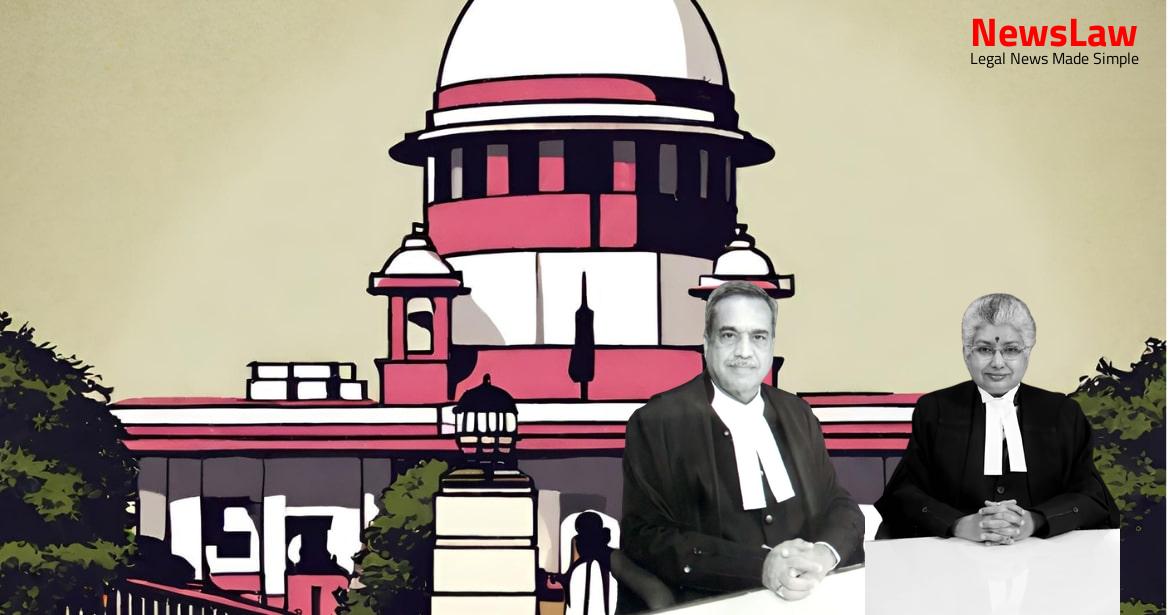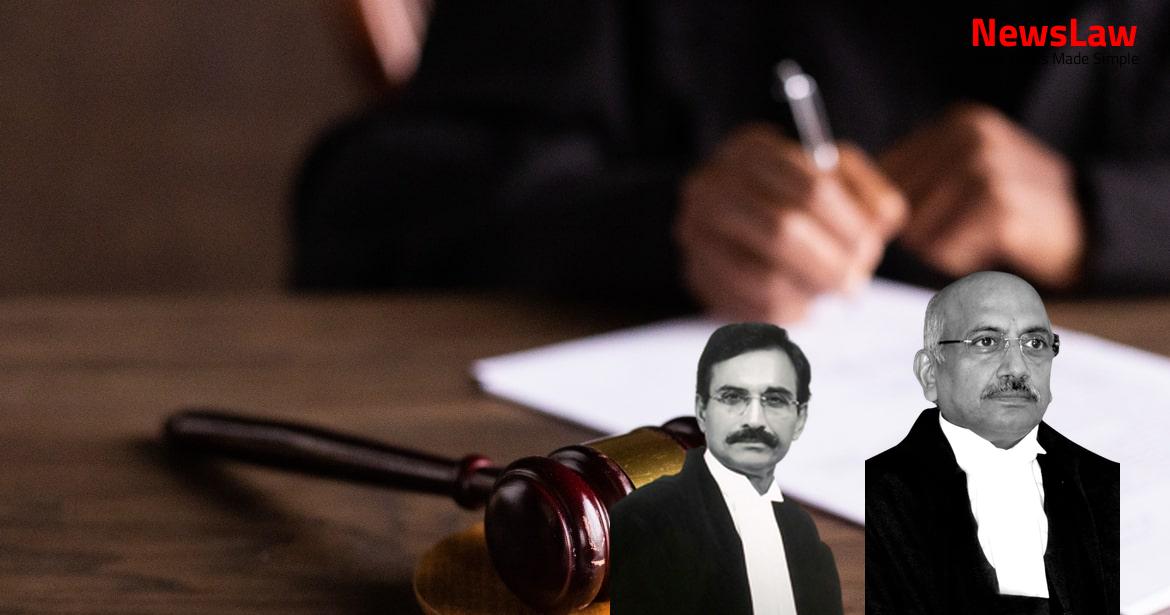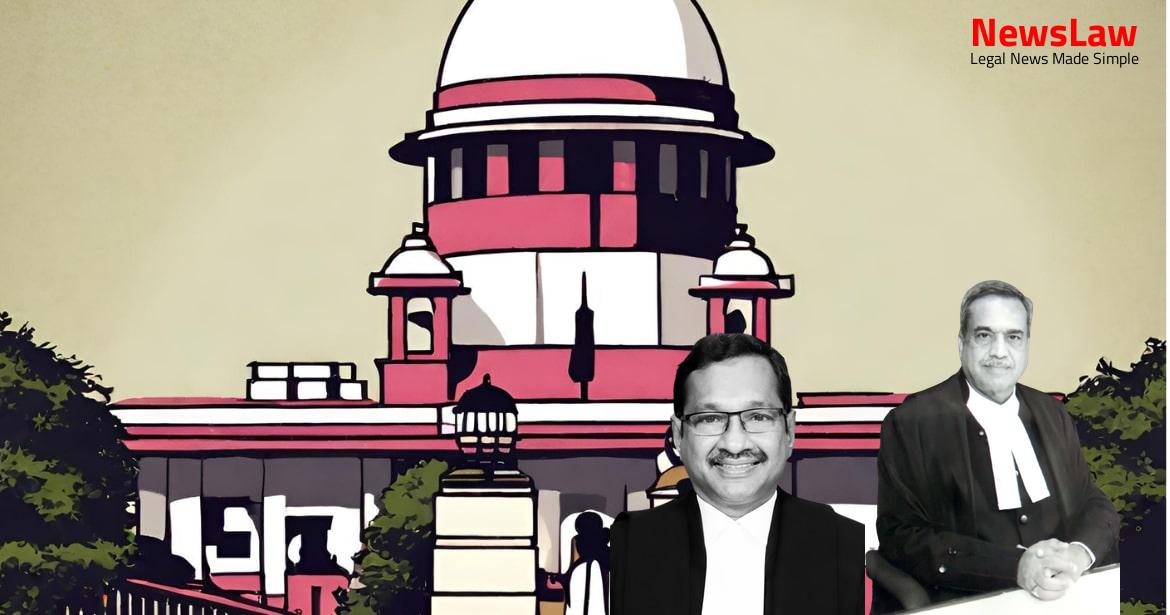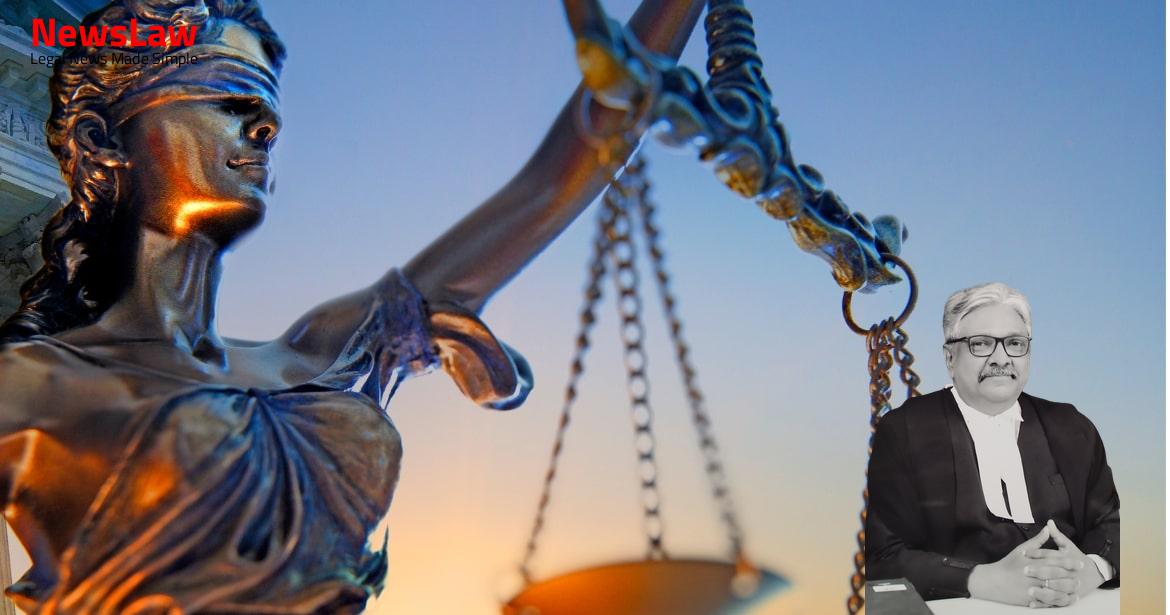This legal case delves into the court’s analysis of allowing an amendment to challenge mortgages in a license revocation case. The focus is on the court’s detailed legal reasoning and its impact on the parties involved. Stay tuned to learn more about the intricacies of this significant decision.
Facts
- The appellant granted licenses for individual shops at the premises from 1983 onwards to various shopkeepers, including the respondent.
- The High Court dismissed the suits with the liberty to avail remedy of arbitration based on the arbitration clause in the license agreement.
- A decree is sought for a declaration that the plaintiff has the right to occupy and use the premises under the irrevocable license until transfer documents are executed.
- Similar notices of license revocation were served on other licensees, granting the defendant the liberty to apply under Section 8 of the Arbitration and Conciliation Act, 1996.
- The lead matter is the impugned order in IA No. 5173-5174 of 2021 in Civil Suit (Commercial) No.189 of 2020.
- The plaintiff filed IA No. 5174 of 2021 seeking to amend the suit to challenge mortgages created by the defendant hotel in favor of certain banks.
- The High Court of Delhi allowed the applications submitted by the original plaintiff to amend the respective suits
- The High Court also ordered the impleadment of mortgagees (Banks)
- The original defendant no.1 – Asian Hotels (North) Limited has filed the present appeals
Also Read: Challenging Legal Presumptions in Negotiable Instrument Cases
Arguments
- The appellant argues that the High Court erred in allowing the amendments to the plaint under Order 6 Rule 17 and Order 1 Rule 10 of the Code of Civil Procedure.
- They contend that the respondents, as licensees, were aware of the existing charges on the premises since 1982 due to Clause 13 of the License Agreement, which has been consistently renewed in subsequent agreements.
- The appellant asserts that the respondents’ rights are subject to the pre-existing charges on the premises, and their attempt to challenge the mortgages now is barred by limitation.
- They argue that the respondents had knowledge of the mortgages through statutory presumption and explicit terms in the License Agreement, negating the claim of acquiring knowledge through court pleadings.
- The appellant relies on legal precedent to support their argument that the challenge to mortgages would be time-barred and invocation of the law of limitation is appropriate.
- In opposition, the respondents support the High Court’s decision to allow the amendments, emphasizing the necessity to implead the banks holding mortgages on the property.
- The respondents argue that no prejudice is caused by allowing the amendments at this stage of the proceedings, as the trial has not yet commenced.
- They stress that the amendments do not seek to directly enjoin the banks but aim to protect the respondents’ interests in the property.
- The respondents contend that the High Court’s decision was just and proper in light of the circumstances of the case.
- The respondents, original plaintiffs, have paid the premium at the time of execution of the License Agreement, indicating an irrevocable and perpetual license.
- The High Court’s orders under Order 6 Rule 17 and Order 1 Rule 10 of the Code of Civil Procedure were justified.
- The plaintiffs lack the right to sue the appellant’s lenders or challenge mortgages and charges related to the hotel project.
- There is no privity of contract between the respondents and the lenders of the appellant.
- The respondents are seeking perpetual ownership rights in the premises and claim to be holders of irrevocable licenses.
- The impleadment of banks and financial institutions (mortgagees) is seen as necessary and proper for the effective relief in favor of the plaintiffs.
Also Read: Legal Analysis of Admission Irregularities in Educational Institutions
Analysis
- Judges should not determine the correctness or falsity of a case when considering whether an application for amendment should be allowed or not.
- The High Court allowed the original plaintiffs to amend their plaints to challenge mortgages and charges on the entire premises, which was a serious error.
- The original plaintiffs had licenses for individual shops within the premises, but these licenses were revoked.
- The licenses allowed the licensor to create mortgages and charges on the premises for financial security.
- The plaintiffs, being license holders, were aware of these mortgages and charges on the entire premises.
- The High Court’s decision was based on the principle that the plaintiffs are the dominus litus, but this principle only applies when adding necessary or proper parties.
- The revocation of licenses is the subject matter of respective suits, and challenging mortgages now would result in misjoinder of causes of action.
- The High Court’s order allowing the amendment to challenge mortgages was not based on proper consideration and would change the nature of the suits.
- The main issue in the suits is the revocation of licenses, not the mortgages created by the appellant for hotel development.
- Relying on the case of Kasturi (supra) was a material error as the original plaintiffs are not concerned with the mortgages created by the appellant.
- Appellant argues that the mortgages were rolled over, refinanced, and replaced for the continuous development of the Hotel Project.
- Challenging the High Court’s orders under Order 6 Rule 17 and Order 1 Rule 10 of the Civil Procedure Code as unsustainable on both factual and legal grounds.
- Plaintiffs cannot challenge the mortgages on the premises as void ab initio in a suit challenging license revocation.
Also Read: Legal Analysis: Driver Appointment Dispute
Decision
- The impugned orders passed by the High Court allowing the application under Order 6 Rule 17 and Order 1 Rule 10 of the Code of Civil Procedure in the respective suits are quashed and set aside.
- The present appeals are allowed.
- There shall be no order as to costs.
Case Title: ASIAN HOTELS (NORTH) LTD. Vs. ALOK KUMAR LODHA (2022 INSC 713)
Case Number: C.A. No.-003703-003750 / 2022



